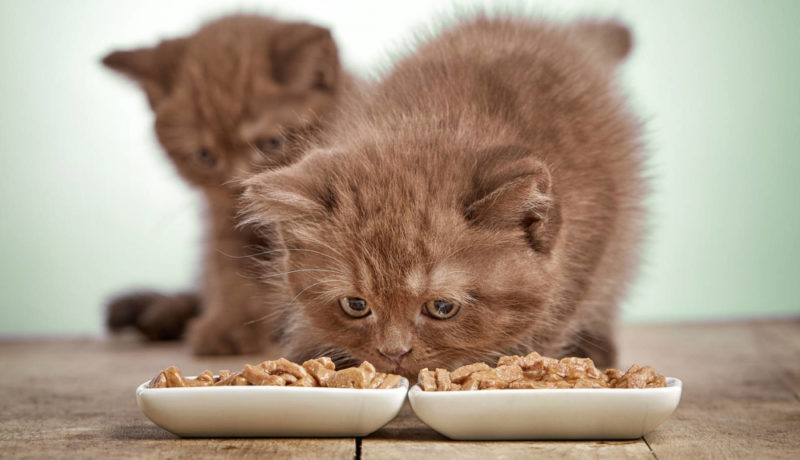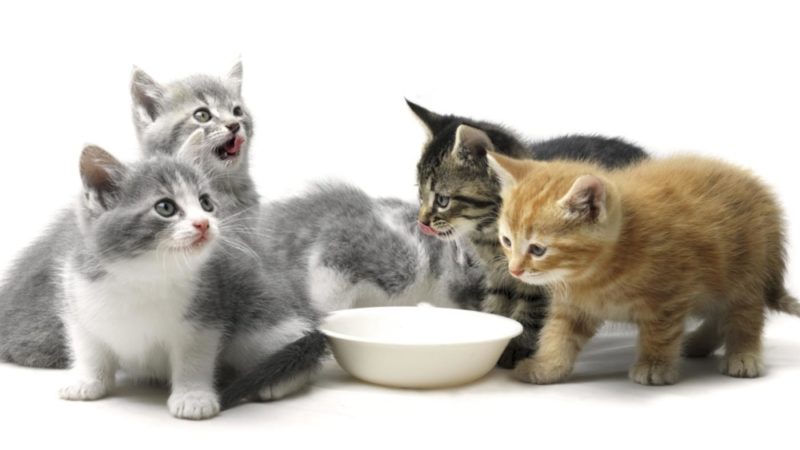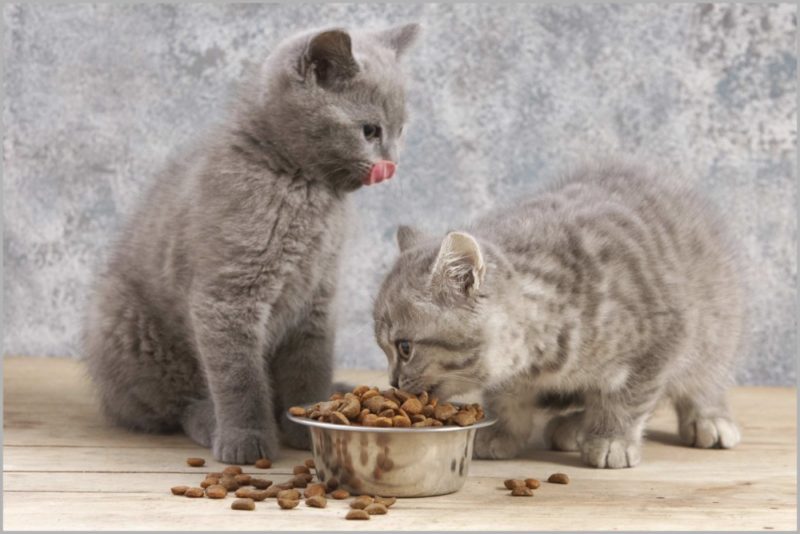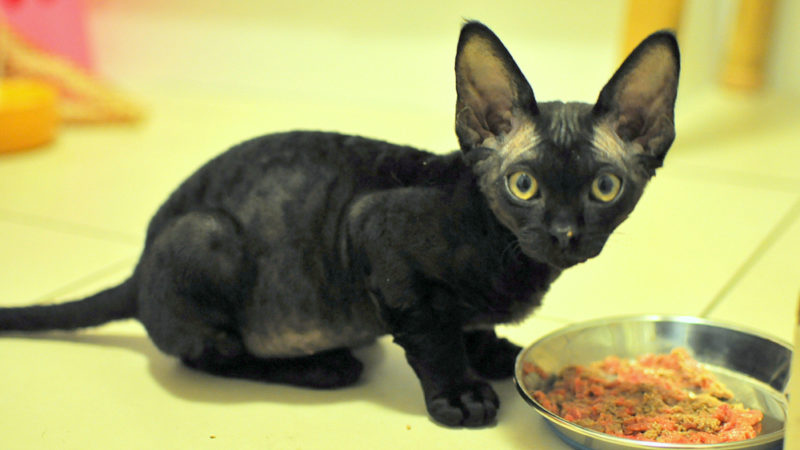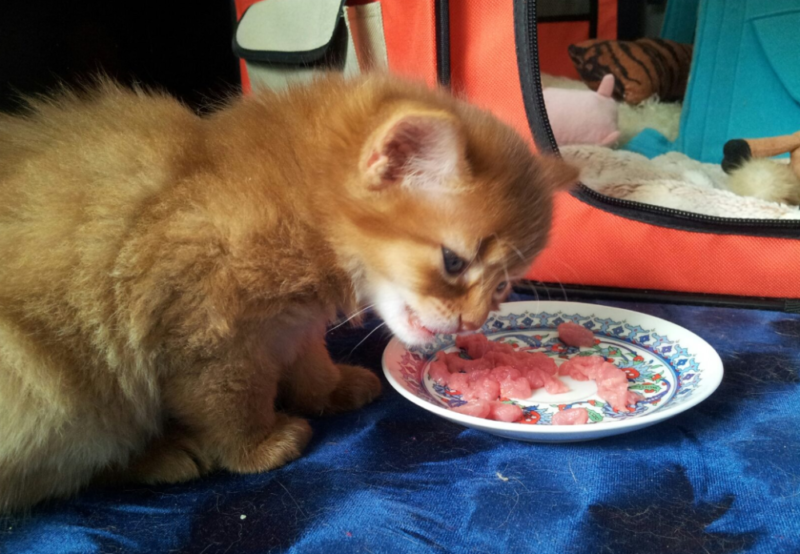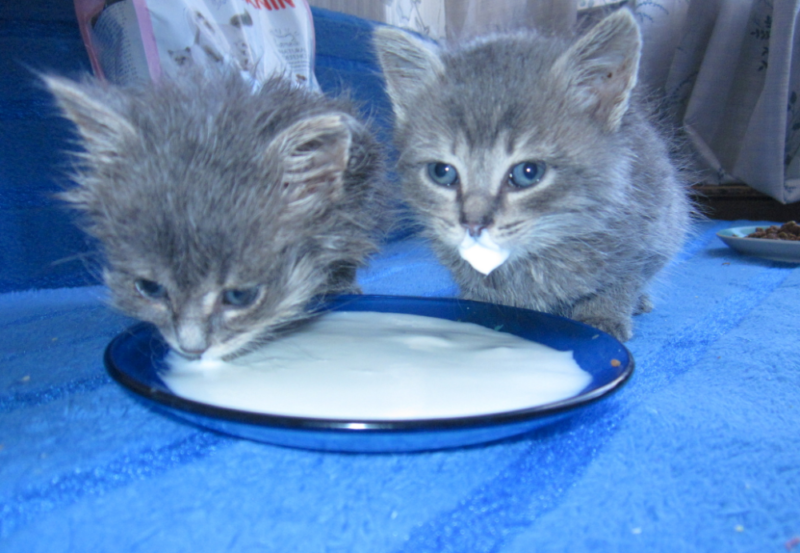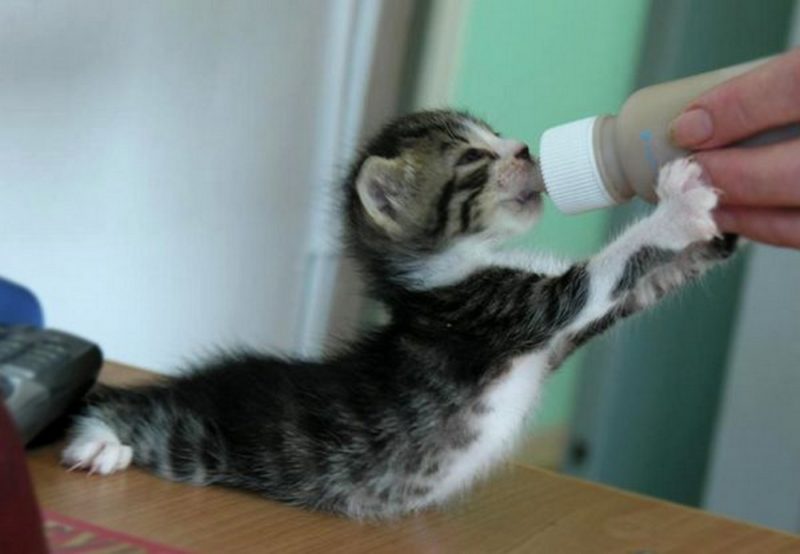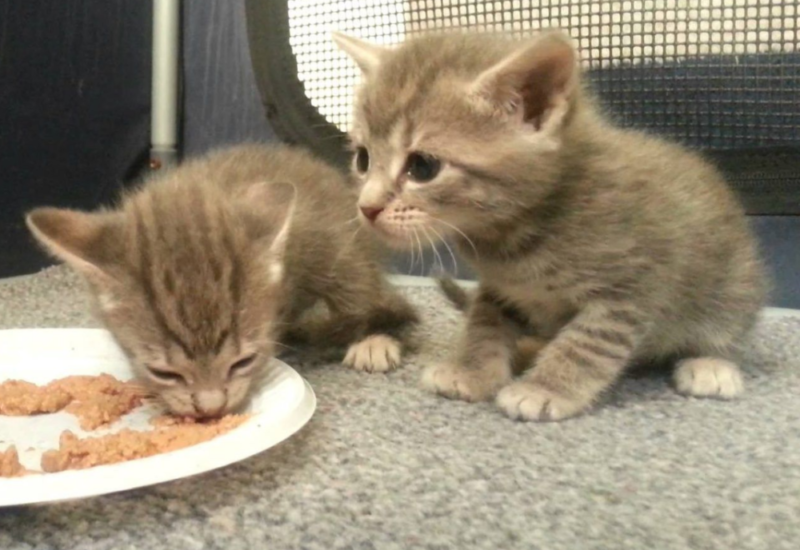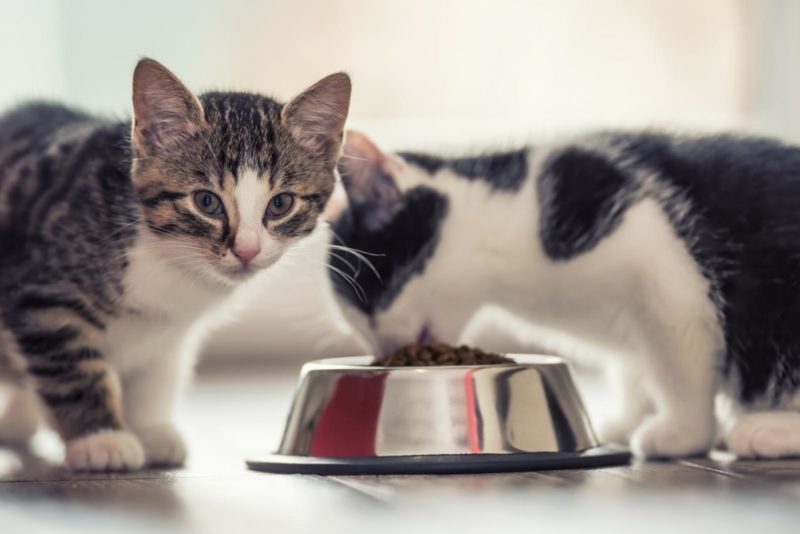In the first weeks after birth, the best food for kittens is mom's milk. When they move into a new family, the question arises from the owners: how to organize the diet of babies? We learn how to feed the kittens so that they are healthy and cheerful.
Material Content:
Kitten Feeding Guidelines
Kittens are the same children. They need special food. The digestive system of a fluffy lump cannot process foods that adult cats eat. The baby's body needs food in which there are a lot of proteins, carbohydrates and nutrients.
In kittens, metabolic processes proceed much faster than in adult animals. This means that they should eat the right food in accordance with the feeding regimen. The opinions of experts on this subject were divided. Some argue that kittens need constant access to food. And others believe that pet feeding should occur in accordance with a strict regimen.
The menu of small kittens is significantly different from the diet that is adhered to when feeding adult cats. It necessarily contains useful elements and components that ensure the growth and development of the baby.
The diet of kittens may consist of dry feed, canned food and products of natural origin. When choosing ready-made meals manufactured in a factory way, it is necessary to give preference to high-quality products from trusted manufacturers.
If you are a supporter of food with a predominance of homemade food - stick to a certain diet. This will ensure fluffy well-being.
How to feed a pet
Feed small pets conveniently prepared feed. This helps save time; there is no need to take care of acquiring additional vitamin complexes.Such food is balanced and contains all the beneficial substances.
Dry food
A kitten cannot eat only dry food. It is necessary to observe the ratio, which should be 75% dry and 25% wet composition per day.
With this method of feeding, it is necessary to ensure that the baby has open access to water. Change it every day.
Dry food for kittens that are still very small is pre-soaked in broth, kefir or water.
The most high-quality and popular are:
- Royal Canin Size Nutrition Mini Junior;
- Hill’s Science Plan Puppy & Kitten;
- Eukanuba Puppy & Junior Small Breed.
Wet food
The composition of wet kitten food should not exceed 20% fat and 35% protein. Experts advise to give preference to those compounds that belong to the super premium and premium class. Their composition is as close as possible to natural food.
Recommended:
- Gourmet;
- Royal Canin Size Mini Junior;
- Hill’s Science Plan Puppy & Kitten;
- Eukanuba Puppy & Junior Small Breed.
homemade food
The choice of natural nutrition in the form of food from the table is not the best option for the baby, and for an adult animal too. Human food is not suitable for them. It leads to a violation of the balance of trace elements in the body of animals. Gastrointestinal upsets and overweight problems result. The pet will not develop as it should. He will weaken the immune system and the coat will lose its luster.
During active growth, a kitten's body requires a lot of vitamins and mineral compounds. Their excess or deficiency leads to the appearance of a variety of pathologies. The right balance of useful elements is the key to success.
As a rule, when choosing a natural type of nutrition, the menu of fluffy lumps consists of cooked meat of chicken, rabbit, turkey, you can give beef. Combine a hearty component with herbs, vegetables, cereals.
You can’t give kittens milk.
It causes intestinal upset in them. And fermented milk products, on the contrary, are useful. We must not forget about cereals. They can be supplemented with pieces of meat. In addition, it is permissible to diversify the diet with fish, only infrequently and a little. And it must be crushed and removed.
If a decision has been made to transfer a pet to production feeds, changes must be made gradually. First, the kitten must be given them by moistening with water. Over time, reduce the amount of fluid to come to a normal state of the finished feed.
Sometimes the owners of cats prefer a mixed type of feeding: they combine homemade food and production feed. With this method, you must adhere to a 2-hour interval between types of food.
Number of feedings per day
With the advent of a small fluffy lump, all households are delighted and tender. A sweet creature will not leave anyone indifferent, sharing enthusiasm and positive.
The baby has already formed its own habits and character. But he needs education and attention. For proper development, it is required to optimally select and balance the diet, as well as adhere to a certain scheme.
1 to 6 months
At 1-2 months, the baby is already able to eat from the saucer independently. It needs to be fed up to 6 times a day (i.e. every 4 hours).
The menu includes:
- meat broth;
- boiled vegetables, brought to the condition of mashed potatoes;
- cottage cheese for children;
- milk mixture;
- boiled egg yolk of chicken or quail - 1 time per day;
- chopped lean meat or fish.
At 2-3 months a day should be at least 4 feedings. By 3 months, the daily amount of food should be almost 300 grams.
Diet:
- boiled fish with white meat or chicken;
- grated raw vegetables or boiled mashed potatoes;
- dairy products;
- raw ventricles of chickens or quail, lean beef or veal;
- porridge cooked on water, well boiled.
4-6 months - the furry pet has grown up, he is interested in the world around him. It grows and develops.Now its menu should consist of 75% meat, and the frequency of feeding is 3-4 times a day.
It is important to know and follow some rules for feeding kittens with meat:
- Do not give fresh meat. This causes protein poisoning, which leads to seizures.
- Do not feed raw pork. It contains many parasites. There is a risk of contracting rabies.
- For the safety of the pet and preventing infection with viruses or parasites, raw meat needs to be frozen for 3-4 days in a freezer.
After five months, pussies have their own gastronomic addictions. For this reason, its menu should be individual. Choosing a natural type of food for your pet, you should not forget about his health. So that he does not hurt and is always cheerful, it is already possible to give mineral and vitamin supplements, given that their excess, as well as a deficiency, can have a deplorable effect on the baby.
From 6 to 12 months
From 6 to 7 months, protein food should prevail in the diet and make up to 85% of the total mass. You need to feed your pet three times a day.
8-12 months - at this age, kittens have teeth replaced. They can eat adult food.
And you need to feed the caudate purr 2-3 times a day. After a year, he is transferred to two meals a day with snacks, if necessary.
The diet when eating natural products should be as expanded as possible.
Taking into account taste preferences, you can enter:
- various vegetables, excluding raw cabbage and broccoli;
- fruits that are not very juicy and do not contain allergens;
- constantly must be greens and grass;
- give buckwheat or rice if necessary.
Proper feeding is the key to the health and vitality of your furry pet.


